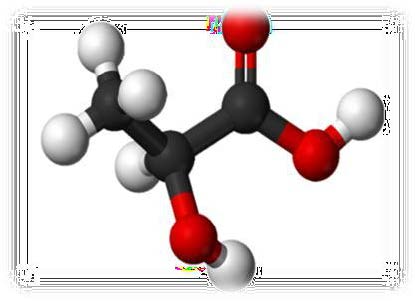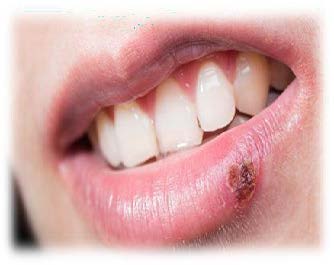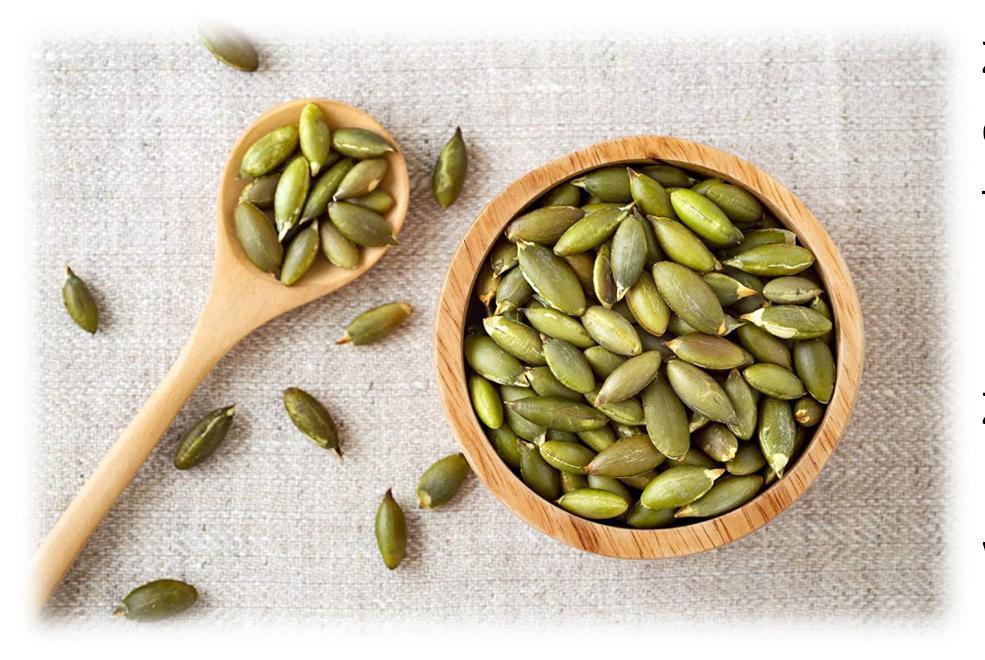I had few lovely Zoom sessions recently with some of our members. There were concerns and questions pertaining to the current Covid-19 pandemic. I understand the worries that our members have and would like to address them here. I will summarise the answers in simple, layman words for easier understanding. Below are the excerpts of the Zoom sessions that I would like to share with all of you.
Q: What is Covid-19?
A: Covid-19 has infected more than 2.4 million people and killed at least 170,000 worldwide as of today.
Covid-19 is from the family of Coronaviruses that can cause illness in animals and humans. Coronaviruses are in fact, an extremely common cause of colds and other upper respiratory infections.
Q. How many types of Covid-19 is there?
A: Experts from Britain and Germany have mapped the evolutionary path of the coronavirus that caused Covid-19 and determined there are currently 3 versions of it spreading around the world; Type A, B and C.
In simple English, the viruses are mutating (changing their forms) and these scientists have put them in 3 forms (variants). But the bad news is that they are still mutating, and more variants could be added later. :(
The virus, according to these experts - is constantly mutating to overcome immune system resistance in different populations.
Q. What are the symptoms of infection by Covid-19?
A: Foremost, there is an Incubation period, which means the time between catching the virus and beginning to have symptoms of the disease. Most estimates of the incubation period for Covid-19 range from 1-14 days (most commonly around 5 days).
People with Covid-19 generally develop signs and symptoms, including mild respiratory symptoms and fever, on an average of 5-6 days after infection.
The virus circulates through droplets in the air spread by coughing or sneezing, and enters the body through the mouth, eyes or nose. It can remain viable on surfaces for hours to days, and may be able to enter the lungs directly when inhaled.
After entering the body, the virus spreads to the back of the nasal passage and to mucous membranes in the throat, attaching to the body’s cell receptors.
The viral particles hook onto the outer walls of the host’s cells, the virus’s genetic material breaches the cell membrane, and it then hijacks the cell into making more copies of the virus. The virus copies proliferate, break out of the cell, and infect other cells in the body. A single cell can churn out millions of copies of the virus.
Some people who are infected have difficulty breathing and require a ventilator, and for others, the lungs become so inundated with fluids that even with intervention, they die.
People suffering from pneumonia are also at a heightened risk for secondary viral and bacterial infections. Pneumonia caused by the Covid-19 appears to be more severe than most cases of the disease, and affects a greater portion of the lungs.
Q: Can you elaborate more on the pneumonia?
A: The inflammation in the lungs, and their reduced efficacy, can cause them to fill with fluids, pus and dead cells, and cause an infection, leading to pneumonia.
Q: I heard that some Covid-19 patients had multiple organs failure?
A: The virus can enter the bloodstream, and may be able to infect the gastrointestinal system, causing symptoms like diarrhoea and indigestion. The infection can also directly damage organs including the heart, kidneys and liver, and cause bone marrow to become inflamed. Small blood vessels may also be vulnerable to inflammation.
As the virus will attack the respiratory system first, it will cause a huge depletion of oxygen to our organs causing cells death and malfunction as well. There are reports that brain can be affected as a consequence.
Q: How long does the virus stay in our body?
A: Patients with Covid keep the pathogen in their respiratory tract for as long as 37 days, according to some studies, suggesting they could remain infectious for many weeks. IN THE FACE OF THE UNKNOWN, ALL WE CAN DO IS PREPARE.
Q: I heard of patients who got Covid and recovered, but there is also possibilities that they might get it again?
A: Covid-19 is a NEW virus, only known to us for the past few months. As such, our knowledge of this virus is rather limited. But if we look at virus in general, as Covid-19 is from the virus family; there hasn’t been any studies to evidently record that viruses can just die and disappear inside a human body or animal.
Viruses infect neurons and hide in the gangelia; so the immune system could not clear it all. Up to date, there is no way to permanently remove the viruses and all antivirals only effective locally or systemically. Hence, patient who has gotten the Covid-19 virus and recovered can get it again in the future. The body does not become immune after infection.
However, there is a silver lining. If someone gets sick with the Covid virus again, the 2nd infection might not be as bad. With other viruses, there’s evidence that, even if someone is reinfected, their immune system might be better equipped to handle it the second time around. I don’t really know what that’s going to look like for this virus, but as I always said; as long as you have excellent immune system, there’s no viruses or pathogens that you can’t conquer.
Q: Now everyone is talking about chloroquine as a treatment for Covid-19. Is that effective?
A: As of now, there is no known effective treatment for Covid-19 as yet. Chloroquine and hydrochloroquine which are typically used against Malaria and Lupus, have gotten a lot of hype in recent weeks after a review said it seemed they could limit replication of the Covid in the laboratory dishes. However, this has not been proven to be effective on human beings as yet. WHO (World Health Organisation) has allowed it to be used on “Compassionate” reason as a last resort to critical (dying) patients. But there are many adverse reports reported recently on the use of chloroquine and hydrochloroquine.
Dangerous side effects of the drugs can include an erratic heartbeat that can lead to sudden death. In severe cases, kidney failure and death. The most common side effects are severe nausea and vertigo, that can last from weeks to months.
Q: Is vaccine the only way to control Covid-19?
A: This is a sensitive question. Hence, I can only give you a personal opinion. Over the years, there are many controversies with regards to the use of vaccines. There are reports that vaccines increase risk of abnormalities, autism, Alzheimer’s and so forth. There are also reports that vaccines do not prove that they could reduce the risk of infections. However, it cannot be denied that paediatric vaccinations have had the most profound impact of any intervention on increasing global child survival. It is also the most profitable business to any pharmaceutical companies.
Thus, the acceptance of vaccination is subjective to individual’s belief and choice.
For Covid-19, there is no vaccine as yet and it will take years to develop one. In normal occasion, pharmaceutical companies need at least 10 years to run clinical human trials before the FDA can approve the license to produce the vaccine in mass. It will be a long time before a proper vaccine for Covid-19 can be developed and approved.
As I mentioned earlier, Covid-19 came from the family of Coronaviruses and is constantly evolving and mutating. I am afraid by the time a vaccine can be developed for Covid-19, another strain(s) would have appeared.
Q: Dr, then what should we do? We are living in fear, all cooped up at home and wondering when is safe to go out.
A: As Covid-19 is a very contagious virus pandemic and affecting the whole world, we do need to practise good personal hygiene and social distancing. There are asymptomatic patients all around us, and the virus can stay in our body for 37 days or even more, thus we need to stay vigilant.
Rather than living in fear, we should gear up our own immunity to go into battle with Covid-19 and other pathogens at any point of time.
Enhancing or strengthening your own immune system is the best way.
Q: What Frontier supplements can we take to improve our immune system to overcome Covid-19? Can we get it from natural food?
A: Natural food is a broad definition. Most supplements derived from natural food. For example, phloridzin is from apple; resveratol is from grape skin; curcumin is from turmeric, etc. Perhaps you want to ask me if you could eat oranges for the vitamin C instead of buying vitamin C supplement?
Of course you can, but the question is would you get adequate vitamin C from that orange you ate? In average, there’s 53mg of Vitamin C in an orange. To get 2000-5000mg of Vitamin C, please do your own maths how many oranges you need to eat.
In addition, our food has became so adulterated, processed, transported and devitalised in so many different ways. That is why food supplements are fast becoming essentials in our lives. Most if not all the food supplements are beneficial to our health. But it’s good to know which one is good for which organ(s) so that we can maximise our investment in health supplements for our body.
As now we are battling the Covid-19 virus, these are some essential supplements that we should choose:
- MulV (multivitamins with time-release vitamin C 2000mg)
- ViC (vitamin C 5000mg time-release)
- CoVe (Coriolus Versicolor mushroom for immune system)
- Cocca C (curcumin/turmeric for anti-inflammation)
- Vit D3 (vitamin D3 50,000IU time-release)
- ProCal (calcium and probiotics)
- Packer (antioxidants)
- NACD (N-Acetyl-Cysteine and Nicotinamide Adenine Dinucleotide)
- Lutox (lungs detox)
There is no problem to combine all the supplements above and together with your other supplements regimen. Do make sure to drink at least 2-3 litres of fluid daily for a good detox.
Q: For patients with Covid or had Covid-19, are the supplements recommendation the same?
A: Yes, the recommendation will be the same. However, there is additional supplements to add in:
1) Zinc and selenium (trace minerals)
2) Lysine (amino acid)
Although we have all these ingredients in MealPlan and TNutrition (total nutrition), the dosage is inadequate for patients recovering from Covid-19. Please make special request to our Frontier HQ or stockists for a special compounded zinc, selenium and lysine (RM75 for 30 capsules). It is recommended to take this for at least 6 months to suppress the virus from attacking the neuron/nerve cells.
Q: Any other recommendation for Covid patients?
A: Yes. If you have undergone antiviral treatment or ingest many drugs during your treatment, please remember to take NACD. NACD is very effective in removing toxins from drugs. So far, it is the only ingredient known to be effective in removing drug side-effects.
Q. Some doctors don’t believe in supplements and advise their patients against taking them. What is your opinion?
A: Well, everyone is entitled to their own opinions. There are also many doctors that believe in the power of health supplements and strongly recommend them to their patients. In many developed countries such as Europe, US, Australia, etc; the healthcare professionals prescribe health supplements as the first care solution and drugs as secondary. Even in China, their healthcare system also emphasise health supplements and traditional treatments first. Thus, I believe strongly in the power of good supplements for our daily need. Modern medicine is important in times of urgency, but nothing beats a strong immune system.
Please refer to the product leaflets for more information. The information provided is for educational and internal use only for our Frontier members.
Stay healthy! Stay safe! Lots of love.
Dr. SJ Jong
Frontier International
What Do You Know About Lysine?

Lysine is one of the essential amino acids, which are those that the body cannot make and that people need to get from dietary source. Lysine is necessary for many bodily functions and it also serve as a building block for protein. It’s important for normal growth, supporting the immune system and muscle turnover and used to form carnitine, which is a substance found in most cells of our body. Other than that, it helps transport fats across our cells to be burned for energy.
Good sources of lysine are high-protein foods such as eggs, meat specifically red meat, lamb, pork, and poultry, soy, beans and peas, cheese, and certain fish such as cod and sardines. A vegetarian or low animal protein diet can be adequate for protein, including lysine, if it includes both cereal grains and legumes, but there is no need for the two food groups to be consumed in the same meals. Lysine seems to be active against herpes simplex viruses and present in many forms of diet supplements. L-Lysine promotes calcium uptake, is essential for carnitine production and collagen formation. As collagen is essential for connective tissue maintenance, this agent may also help heal mucosal wounds. This may help decrease and prevent mucositis induced by radiation or chemotherapy.
Why Lysine is Important for Immune System?

Lysine claimed to have protective effect against and treat cold sores by blocking arginine. Cold sores also called fever blisters which is caused by viral infection. They are tiny, fluid-filled blisters on and around the lips. After the blisters break, a crust form over the resulting sore. Cold sores spread can be contagious from the person to person by close contact. Lysine supplements may help in prevent the viral causes the cold sore from replicating and reduce the duration of cold sore by blocking another amino acid called arginine which the viral needs in order to multiply.
Furthermore, there is evidence that when lysine is combined with Vitamin C and Zinc that may have anti-viral properties especially against the herpes virus. L-lysine attacks the virus that causes cold sores, shingles and herpes and prevents it from entering cells and altering their function. Research suggests that a 1,500mg supplement of L-lysine may be able to counter the virus (in conjunction with a balanced diet), preventing the emergence of symptoms. L-lysine works by helping to upregulate the immune system, particularly a class of antibodies called IgG. Studies have found that when high doses of vitamin C are used together with L-lysine, the levels of these antibodies in the blood rises. L-lysine, therefore, boosts the immune system and may help to develop optimal health.
What is Zinc and What Does It Do?

Zinc is an essential mineral that our body cannot make itself. In other words, we need to obtain it from food or supplements. Zinc is the second-mostabundant trace mineral in our body, and is present in every cell. Zinc is vital in numerous aspects of cellular metabolism. There are around 100 enzymes which their catalytic activity requires zinc. Nevertheless, zinc plays a role in immune function, protein synthesis, wound healing, DNA synthesis, and cell division. Zinc also supports normal growth and development during pregnancy, childhood, and adolescence and is required for proper sense of taste and smell. A daily intake of zinc is required to maintain a steady state because the body has no specialized zinc storage system.
Deficiency of zinc causes growth retardation, loss of appetite, and impaired immune function. In more critical cases, zinc deficiency causes weight loss, hair loss, delayed sexual maturation, diarrhea, impotence, delayed healing of wounds, eye and skin lesions. Zinc supplements normally help in zinc deficiency and to help to slow advanced macular degeneration of the retina. Besides, zinc is been found out that it reduces the average duration of common cold.
How Does Zinc Helps in This COVID-19 Pandemic?
Coronaviruses are a large family of viruses which may cause illness in animals or humans. These viruses causes respiratory infections ranging from the common cold to more severe diseases such as Middle East Respiratory Syndrome (MERS) and Severe Acute Respiratory Syndrome (SARS). The most recently discovered coronavirus disease is COVID-19. Coronavirus appear to be easily affected by the viral inhibitory actions of zinc. Zinc may prevent entry of coronavirus into cells and it seems to reduce coronavirus virulence. Furthermore, increasing zinc concentration within cells appears to efficiently impair the replication of a variety of RNA viruses, including poliovirus and influenza virus. For some viruses this effect has been attributed to interference with viral polyprotein processing. In addition, severe zinc deficiency causes impaired immune function and mild degrees of zinc deficiency can causes impaired macrophage, neutrophil and natural killer cells activity. Thus, it is important to have sufficient zinc to maintain our immune health.